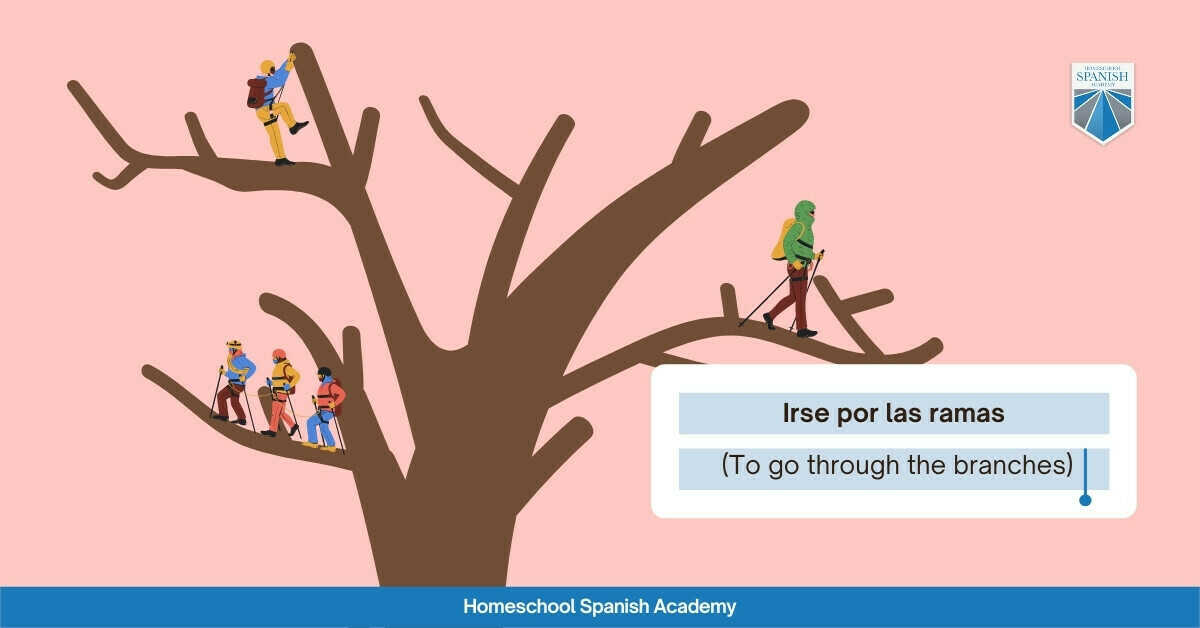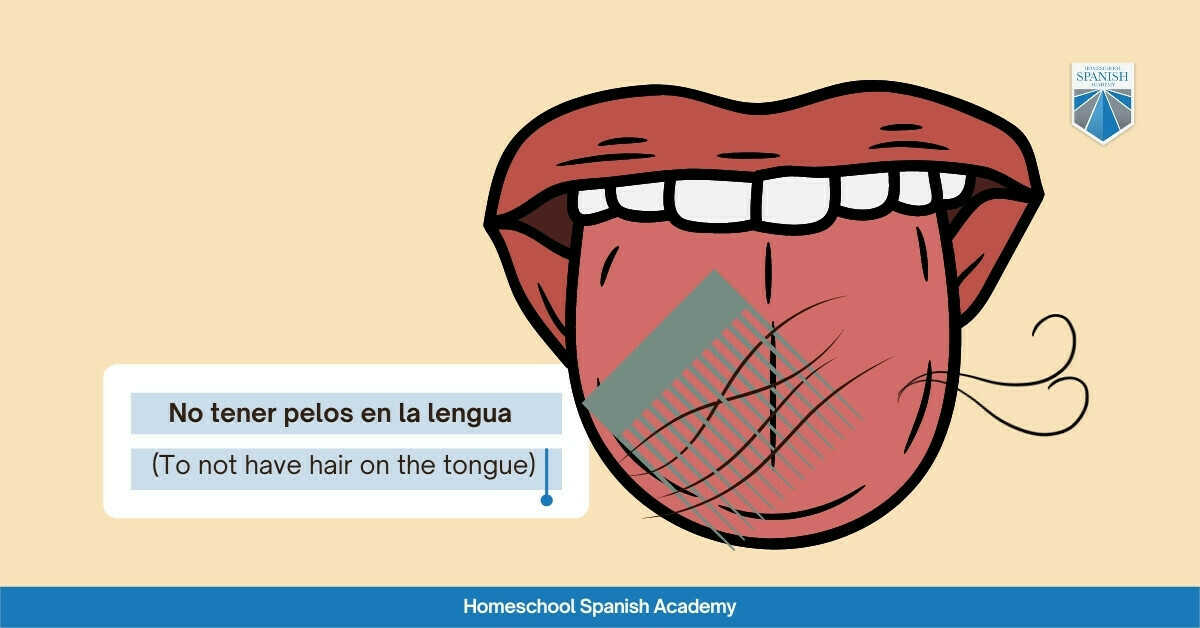These funny Spanish phrases will take your Spanish to the next level!
In this post, you’ll learn 10 funny Spanish phrases and idiomatic expressions that native speakers use in conversation. I provide detailed explanations on how to use them along with descriptive example sentences.
Get ready to speak Spanish like a native!
Why Learn Funny Spanish Phrases?
Funny Spanish phrases are about more than just making people laugh! They are idioms and expressions that native speakers use in everyday speech. Knowing these funny expressions improves your Spanish comprehension and helps add context to conversations. Besides, phrasal verbs and filler words are great tools to use for increased fluency.
However, if you want more funny Spanish action, you can always memorize some silly Spanish jokes or puns!
You should note that these are general examples of idiomatic expressions in Spanish. However, not every Spanish-speaking country uses these phrases. Each country has its colloquial vocabulary that has a meaning to them, but it means something different in other countries. That is why learning Spanish can become so interesting!
10 Funny Spanish Phrases That Will Impress Native Speakers
Here are 10 goofy phrases that will have you sounding like a native speaker. See if you can guess the meaning behind any of these funny Spanish phrases!
1. No Saber Ni Papa De Algo (Not Knowing A Potato About Something)
This phrase sounds odd in English, but it’s very common in the Spanish language!
You can use this phrase when you know absolutely nothing about something. The English equivalent is “to be clueless about something.”
This phrase will definitely come in handy the next time you find yourself confused!
No puedo contestar esa pregunta porque no sé ni papa de ese tema.
I can’t answer that question because I don’t have a clue about that subject.
2. Ser Pan Comido (To Be Eaten Bread)
This phrase doesn’t actually mean that you’ve been eaten!
Ser pan comido is a way of saying that something was super easy. In English, you might say it was a “piece of cake.”
El examen de español fue pan comido.
The Spanish test was a piece of cake.
3. Tomar El Pelo (To Take Someone’s Hair)
This phrase is very similar to “pulling your leg” in English. It’s a way to say that you are lying or just messing with somebody.
This light-hearted teasing can help you create fun, playful conversations in Spanish!
Miguel estaba tomándote el pelo; en realidad no tiene 11 dedos.
Miguel was pulling your leg, he doesn’t actually have 11 fingers.
4. Irse Por Las Ramas (To Go Through The Branches)
Have you ever met someone who could turn a short story into an hour-long conversation? When you run into someone like this, it is a perfect time to use the phrase irse por las ramas.
This funny Spanish phrase means that the main points of the topic are being omitted or delayed intentionally. In English, you might say the person is “beating around the bush.”
Los niños nunca hablan de sus calificaciones, siempre se van por las ramas.
The kids never talk about their report card grades, they’re always beating around the bush.

5. Feliz Como Una Lombriz (Happy As A Worm)
This phrase has a nearly identical twin in English!
Feliz como una lombriz is just like saying “happy as a clam.” Both of these expressions mean that someone is very happy about something. However, the Spanish version rhymes!
Mi hermano estaba feliz como una lombriz cuando compró su nuevo carro.
My brother was as happy as a clam when he bought his new car.
6. No Tener Pelos En La Lengua (To Not Have Hair On The Tongue)
This funny phrase describes a person as straightforward, honest, and direct. It’s like saying that somebody doesn’t “mince their words” in English.
Lucía no tiene pelos en la lengua para expresar sus sentimientos.
Lucía does not mince words when it comes to expressing her feelings.

7. Tener Mala Leche (To Have Bad Milk)
Tener mala leche has two meanings in Spanish. “To have bad milk” means having bad luck. However, this phrase can also describe a person as moody or bad-tempered.
Andrés perdió su trabajo y estrelló su coche en la misma semana. Tiene mala leche.
Andrés lost his job and crashed his car in the same week. Tiene mala leche.
8. Ponte Las Pilas (Put In Your Batteries)
Ponte las pilas means to “wake up” or “look alive.” You might hear a Spanish teacher use this phrase to get their students to focus.
Si no te pones las pilas, vamos a tener problemas con el profesor.
If you don’t get your act together, we are going to get in trouble with the teacher.
9. Estar En La Edad Del Pavo (To Be In The Age Of The Turkey)
Surprisingly, this goofy phrase actually refers to “the teenage years” and not Thanksgiving. In different Spanish-speaking countries, you would hear equivalents such as “edad del burro“ or “edad de la zebra.” These phrases represent a teenager’s attitude and are often used to joke about how difficult teenage years can be.
Le daré a José un poco de holgura, ya que está en la edad del pavo.
I will give José some slack since he is a teenager.
10. Tirar La Casa Por La Ventana (To Throw The House Through The Window)
Tirar la casa por la ventana is a snarky Spanish phrase that means someone is spending lots of money without thinking.
In English, you might say “money is no object” or “spare no expense.”
So when someone is spending a lot of money without thinking about it, going on a spending spree, or spending like crazy, you could say a phrase similar to this one:
Víctor acaba de comprar un coche nuevo y tiró la casa por la ventana.
Victor just bought a new car and was spared no expense.
Practice These Funny Spanish Phrases In a Free Live Class

With over 20 Spanish-speaking countries in the world and a growing Latino population in the U.S., there has never been a better time to learn this fun language! Spanish opens the door to thousands of new connections and travel opportunities.
Continue your own language journey by signing up for a free trial class with Homeschool Spanish Academy! And better yet, use the Ling app to practice what you have learned when you’re not on a live lesson and impress your teacher the next time you see them!








